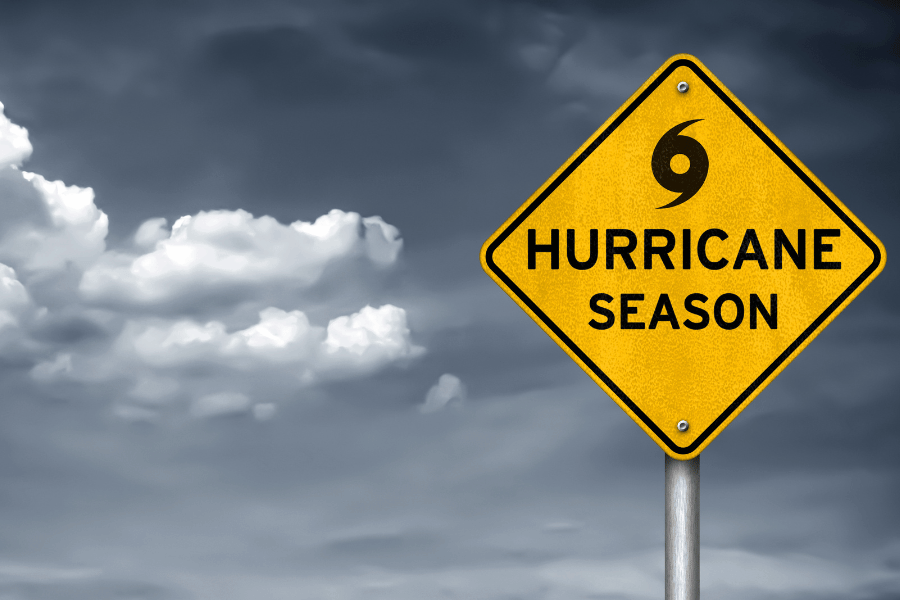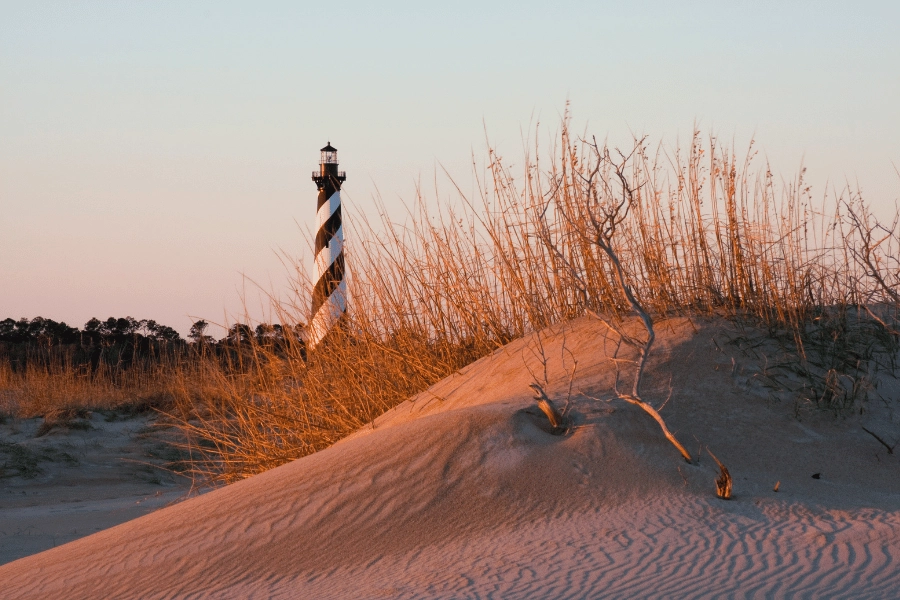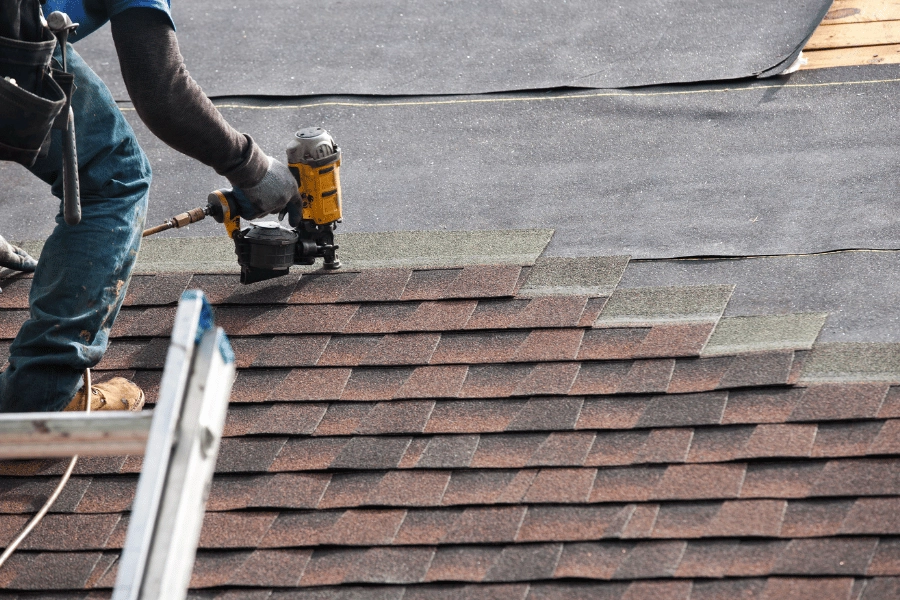Hurricane Season and NC Real Estate: What To Expect
Are you located in North Carolina and want to know what to expect with the upcoming hurricane season and its impact on real estate? Here is all you need to know and what to expect.
Hurricane season is officially here, and soon, storms will start to make their way across the Atlantic Ocean to visit us. While some people know how to prepare for a disastrous storm, such as stocking up on supplies and securing their homes, others may not be as familiar with what to do before it strikes.
When a tropical storm or hurricane is forecast to approach North Carolina, property owners need to stay current on all the weather experts' predictions. Storms can change paths at any moment, so you need to be aware of how strong they are and when they will make landfall.
People often assume that drastic dangers have no chance of affecting their house. However, many people are affected. All homeowners need to take the steps to prepare for dangerous weather because it does and will happen in North Carolina.
Some predictions state that the Atlantic hurricane season will be "extremely active," with 23 named storms, 11 hurricanes, and five major-rated Category 3 and above. North Carolina experiences many natural disasters annually, including hurricanes, tornados, and food. There is some useful advice all homeowners should know to be prepared.
Here is all you should know about the hurricane season and North Carolina real estate.
1. Understanding the Storm
Before hurricane season, it is important to be prepared for possible evacuations. North Carolina has established predefined evacuation zones in 20 eastern counties, and local officials are responsible for helping with these plans. These evacuations can be voluntary or even mandatory, so make sure you listen to ensure your safety.
It is a good idea to pay extra attention to the steps when a hurricane's path is projected to travel to your area. Most hurricanes are accurate 2-3 days before landing, so you will want to keep a close eye on them.
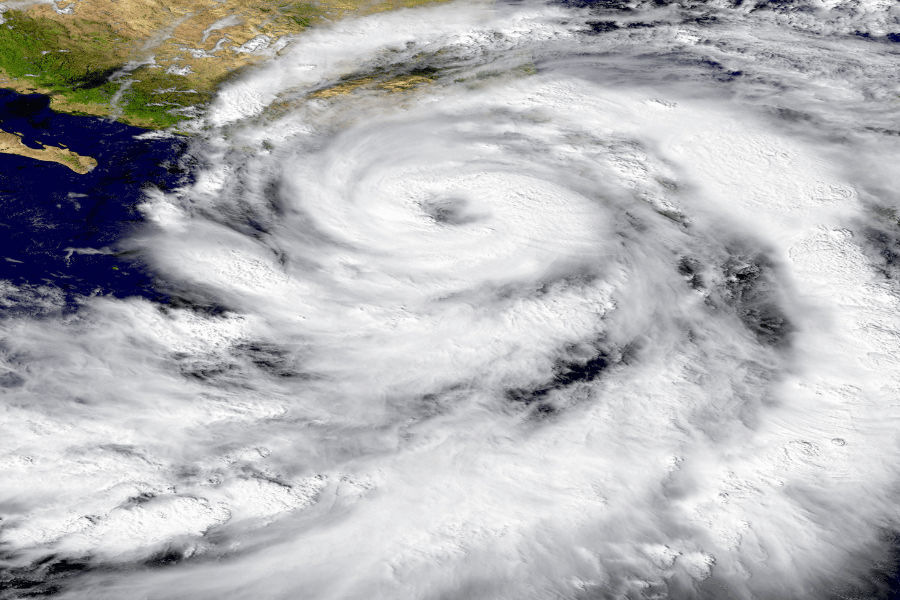
According to the National Hurricane Center, the 2024 Atlantic Hurricane season outlook has an 85% above-normal probability, 10% near normal, and 5% below average. Be prepared for your risk, and make sure you have multiple ways of receiving forecasts and information before, during, and after storms.
Terms to Know:
- Hurricane Warning: Sustained winds of 74 mph or higher are expected in a specified area within 36 hours.
- Hurricane Watch: Sustained winds of 74 mph or higher are possible in a specified area within 48 hours.
- Tropical Storm Warning: Sustained winds of 39-73 mph are expected in a specified area within 36 hours.
- Tropical Storm Watch: Sustained winds of 39-73 mph are possible in a specified area within 36 hours.
Classifications to Understand:
- Category 1: storms (74-95 mph) can cause damage to roofs, vinyl siding, and gutters and lead to power outages.
- Category 2: storms (96-110 mph) frequently lead to major roof and siding damage and extended power outages.
- Category 3: storms (111-129 mph) often cause structural damage to frame houses and peel off gable-end roofs.
- Category 4: storms (130-156 mph) may cause exterior wall loss and total structure failure on smaller residences.
- Category 5: storms (157 mph or higher) will destroy most homes and leave neighborhoods unlivable for months
2. Why Prepare?
During the busy hurricane season, getting caught up in your life and forgetting about home safety can be easy. A natural disaster is not as unlikely as some may think, especially if you live in North Carolina or South Carolina.
According to studies, the state ranks fifth in the country for the number of homes that are at high risk or very high risk for natural disasters. Sadly, a storm can occur during each season.
Summers in North Carolina are prone to hurricanes, starting June 1st, so please ensure you are prepared beforehand. On the other hand, tornados can strike at any time, with the peak being in the Spring. Then, there is winter, which experiences snowstorms, icy roads, and power outages. Finally, you will experience anything in the fall, from floods to wildfires.
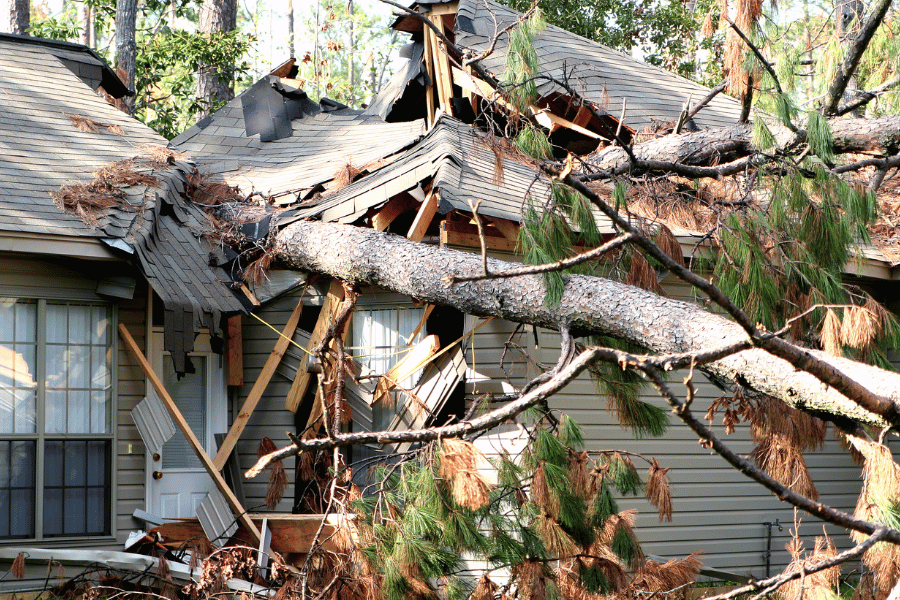
Here are some trusted sources of information you can also use to keep up to date during storms:
- North Carolina Department of Public Safety
- North Carolina Emergency Management
- NC Flood Inundation Mapping and Alert Network
- North Carolina Department of Transportation
- North Carolina State Highway Patrol
- North Carolina 2-1-1
- Federal Emergency Management Agency
- National Hurricane Center
- National Weather Service
3. Hurricane Damage to Your Home
The major causes of hurricane storm damage are high winds and torrential rainfall, which can result in flood damage. When high winds damage your home, it becomes even more vulnerable to water intrusion. Home insurance is important to have in case of an emergency or damage to your property.
Here are some types of damage that can occur to your home that you should be aware of.
Roofs
Winds up to 156 mph can tear up or lift even the strongest roofs off homes and buildings. If the roof is relatively new and in good shape, most standard policies will pay to repair it back to its condition, and some will even pay for a new roof. This, however, depends on your insurance coverage as well.
Interior
When roofs, windows, and doors are damaged, heavy rain and flying debris can enter your home, damaging walls, floors, and furnishings. Another thing that rain inside can do is build mold growth. The chance of mold growth is high from damage from hurricanes.
Equipment
Flooding can impact many types of equipment, including the power surges that hurricanes often bring. It can also damage your home, causing damage to hot water boilers, transformers, air conditioning systems, computer equipment, telephone systems, and many other electrical appliances.
Most people assume equipment damaged by a hurricane will automatically be covered, but that is not always the case. Another thing you should know is if your equipment does not look damaged right after the storm, you should note potential damage in your car because it may stop working after time due to its damage.
Public Utilities
Local evacuation orders can impact insurance claims by delaying your ability to assess damages and complete remediation. Make sure to document your evacuation orders and the time when you are returning. Insurance adjusters may not have this information, which can affect your claims.
Dealing with hurricane damage can result in complex insurance claims. Still, policyholders can enhance their chances of recovering personal losses by taking a few simple steps to ensure they document everything.
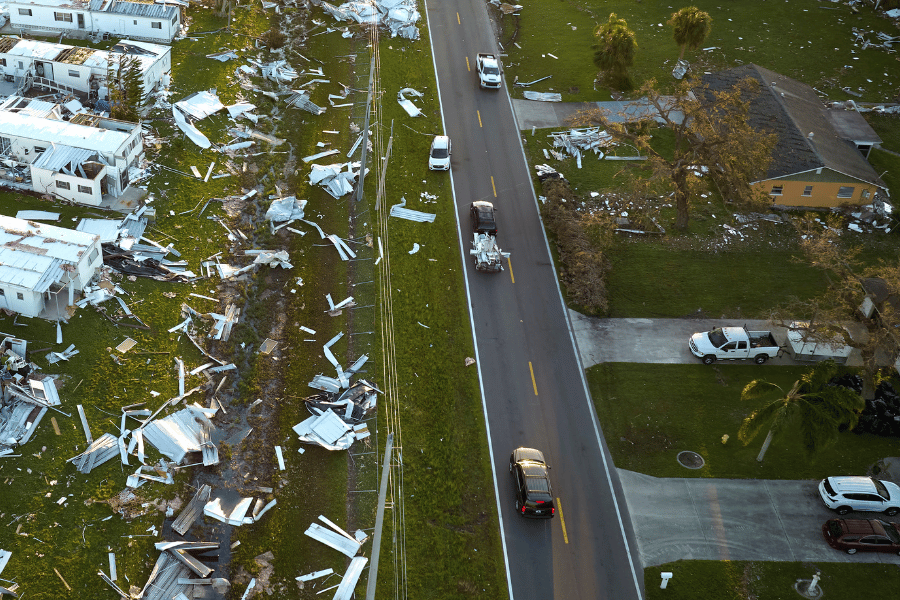
According to a new study, areas along the North Carolina coast are some of the most likely places to be hit by a hurricane or tropical storm. This year's dangerous storms can cause millions of dollars in infrastructure and residential damage.
Cape Hatteras, Morehead City, and Wilmington are the areas with the highest odds of being affected by hurricanes or tropical storms. Each area experinces these vents once every year and a half.
The last large hurricane to affect North Carolina was Florence in 2012. That Category 1 hurricane caused about $22 billion in total infrastructure and residential damage.
4. How to Prepare and Tips to
Here is a North Carolina Hurricane Preparedness Checklist you should use if you are in an area that is possibly going to be hit:
- Empty your gutters
- Trim tree branches
- Make sure your roof is in good condition
- Brining unsecured outdoor furniture and other items
- Use plywood, at least 5/8 inches thick, to board up windows (in coastal areas)
- Use sandbags near entrances if you are in a flood zone
- Fill your gas tank in your car just in case you need to evacuate
- Make a plan for evacuation with your family
- Store valuables in waterproof containers
- Review your insurance information and keep it safe from damages
- Take pictures of your home and valued belongings
- Turn your freezer and fridge to their coldest setting just in case the power goes out
- Invest in a portable generator
- Find the safe zone in your house
- Bring your hurricane supplies to your safe area
- CHarge all devices
- Fill your bathtub with water
As well as steps, here are some tips and kits you should include in your hurricane preparation:
- Water, food, first aid kit
- Food (nonperishable)
- Battery-powered radio (and extra batteries)
- Flashlight
- Important documents
- Cash and change
- Extra keys
If you have a child/baby:
- Formula/bottles
- Diapers
- Wipes
- Pacifier
- Other baby necessities
Never forget your pets:
- Canned or dry pet food
- Water for at least 3-7 days
- Collar/leash/harness
- Immunization records
- Identification tag (name and phone number)
- Current photos of pet
- Medicine your pet requires
- Bed/toys
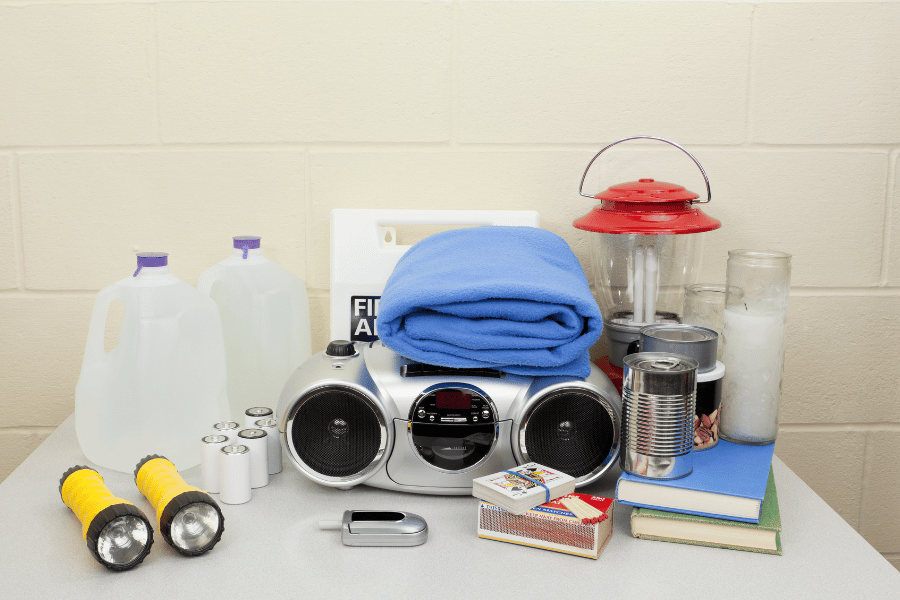
5. Repairs and Insurance Coverage
By being prepared, homeowners and renters can spare themselves a lot of stress during severe weather events. Property damage is always unfortunate, but it does not have to ruin your day if you are ready.
Homeowners and renters insurance policies typically do not cover flood damage. While you may think you only need flood insurance if you live in a high-risk flood area, the North Carolina Hurricane Guide states that more than 20% of flood claims come from non-high-risk flood areas.
Here is a list of things homeowners should keep in mind as a storm approaches your area.
- Ensure you have coverage so you do not have to pay out-of-pocket repairs. Find a type that is best suited for protecting the value of your investment property
- Make sure you have all your insurance documents, so you have them ready just in case
- If you are in an HOA, read the governing documents to determine what is covered by the association policies and what you are responsible for
- Preventive maintenance is essential. Make sure your trees are trimmed, dead branches are removed, and gutters are clean. This way, you are giving your home more protection when the storm comes
August and September have been historically the most active months, so make sure you are prepared just in case a storm does head your way to minimize storm-related damage and keep you and your property safe.
Methodology
We used information and data from several different sources as well as our own data to create this guide about what to expect with the hurricane season and North Carolina real estate. Most of the data was sourced from the following sources:
Above are a few sources that we used to gather most of our information about what to expect with the hurricane season and North Carolina real estate.
FAQS
Do property values go down after a hurricane?
Even if the damage to your home is repaired, if historical evidence of previous disasters remains, it can lower its value.
What area of North Carolina is most likely to be affected by hurricanes?
The easternmost areas, especially Cape Hatteras, Morehead City, and Wilmington are most likely to be affected by hurricanes or tropical storms.
What month has the most hurricanes in North Carolina?
The Atlantic Hurricane Season runs from June 1 to November 30, with the peak season from mid-August to late October. Heavy winds, tornadoes, strong thunderstorms, flooding, storm surges, and landslides can all be caused by a hurricane causing damage during this time.
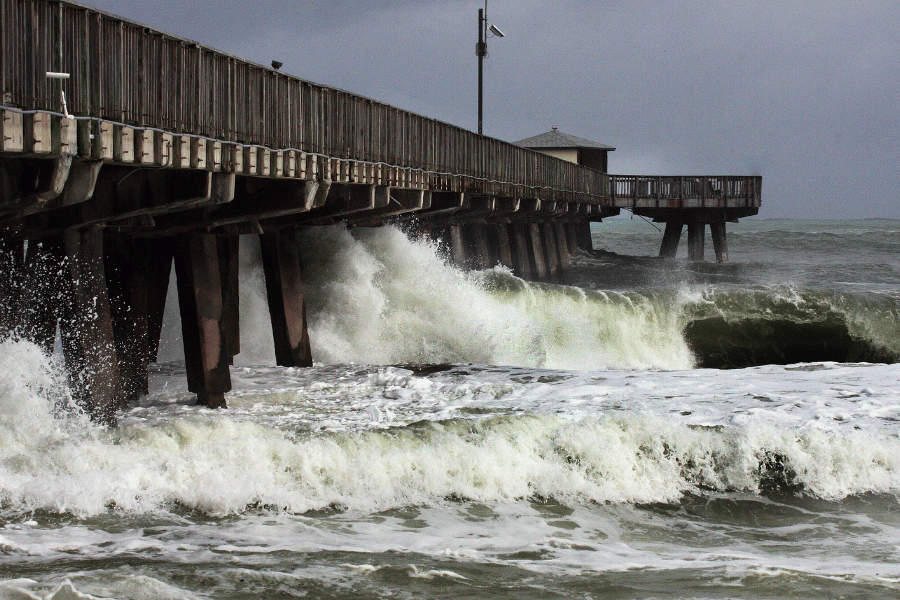
Hurricane Season and NC Real Estate: What To Expect - The Bottom Line
If you live in Raleigh, Lillington, and neighboring areas, especially by the coast of North Carolina, hurricane preparedness for homeowners can be a life-saving investment. The hurricane season begins June 1 and lasts about five months, ending in November. The peak season is typically in August and September.
Having your family and home prepared for a hurricane in advance will give you peace of mind and avoid costly repairs. There are many helpful guides and tips to follow to ensure your readiness.
After the storm has passed, it is important to assess your home for any visible damage, as being unprepared may lead to the loss of your home or costly repairs. Hopefully, your property was not significantly affected, especially after taking necessary precautions ahead of time.
If you are considering moving or selling, contact us or visit our website. Our team at Raleigh Realty is here to help you with any home buying or selling needs.
